SANAA – Former president Ali Abdullah Saleh was killed in a roadside attack on Monday after switching sides in Yemen’s civil war, abandoning his Iran-aligned Houthi allies in favor of a Saudi-led coalition, foes and supporters said.
Analysts said Saleh’s death would be a huge moral boost for the Houthis and serious blow to the Saudi-led coalition that intervened in the conflict to try to restore the internationally recognized government of President Abd-Rabbu Mansour Hadi.
Any hope of the coalition that Saleh could have been bought off to help turn the tables against the Houthis after protracted stalemate, in which a Saudi-led blockade and internal fighting has exposed millions to hunger and epidemic, has been dashed.
The coalition will either have to continue waging a grinding war, possibly trying big offensives against Houthi-held areas at the risk of high civilian casualties, or offer compromises to bring the powerful Houthis to the negotiating table.
Sources in the Houthi militia said its fighters stopped Saleh’s armored vehicle with an RPG rocket outside the embattled capital Sanaa and then shot him dead. Sources in Saleh’s party confirmed he died in an attack on his convoy.
Unverified footage of his bloodied body lolling in a blanket circulated, just days after he tore up his alliance with the Houthis following nearly three years in which they had jointly battled the Saudi-led coalition.
In a televised speech on Monday, Houthi leader Abdul Malik al-Houthi hailed Saleh’s death as a victory against the Saudi-led bloc, congratulating Yemenis “on this historic, exceptional and great day in which the conspiracy of betrayal and treason failed, this black day for the forces of the aggression”.
He said the Houthis, who hail from a Shi’a Muslim sect, would maintain Yemen’s republican system and not pursue a vendetta against Saleh’s party.
Houthis celebrate, seize control of much of Sanaa
Supporters of the Houthis drove through Sanaa’s streets blasting celebratory war songs.
Al-Houthi also hailed a missile launch announced by the group toward the United Arab Emirates this week as a message to its enemies, advising against foreign investment in the UAE and Saudi Arabia as their campaign in Yemen continues.
Saleh, 75, had said in a speech on Saturday he was ready for a “new page” in ties with the coalition and called the Houthis a “coup militia”, leading them to accuse him of betrayal.
Warfare between the erstwhile allies has torn densely populated Sanaa for days, with Houthi fighters seizing control of much of the capital and on Monday blowing up Saleh’s house while coalition jets bombed their own positions.
Hadi, in a speech carried live on Saudi-owned al-Arabiya TV, called for a new chapter in the battle against the Houthis after Saleh’s death. “I call upon … the Yemeni people in all provinces still suffering under this criminal and terrorist militia (Houthis) to rise in its face…and cast it out, and our heroic army stationed around Sanaa will be their supporters.”
For two years the war in the Arabian Peninsula country has been one of attrition along mostly static front lines.
Coupled with Saudi-led blockade and internal clashes, the stalemate has contributed to a human catastrophe with millions driven to the brink of famine and deadly epidemics such as cholera spreading.
Eyes will now turn to Saleh’s political allies and military commanders, whom analysts credited with aiding the Houthi march southwards in 2014 to dominate swathes of western Yemen.
Saleh, a master of weaving alliances and advancing his personal and fa
mily interests in Yemen’s heavily armed and deeply fractious tribal society, unified his country by force, but he also helped guide it toward collapse in its latest war.
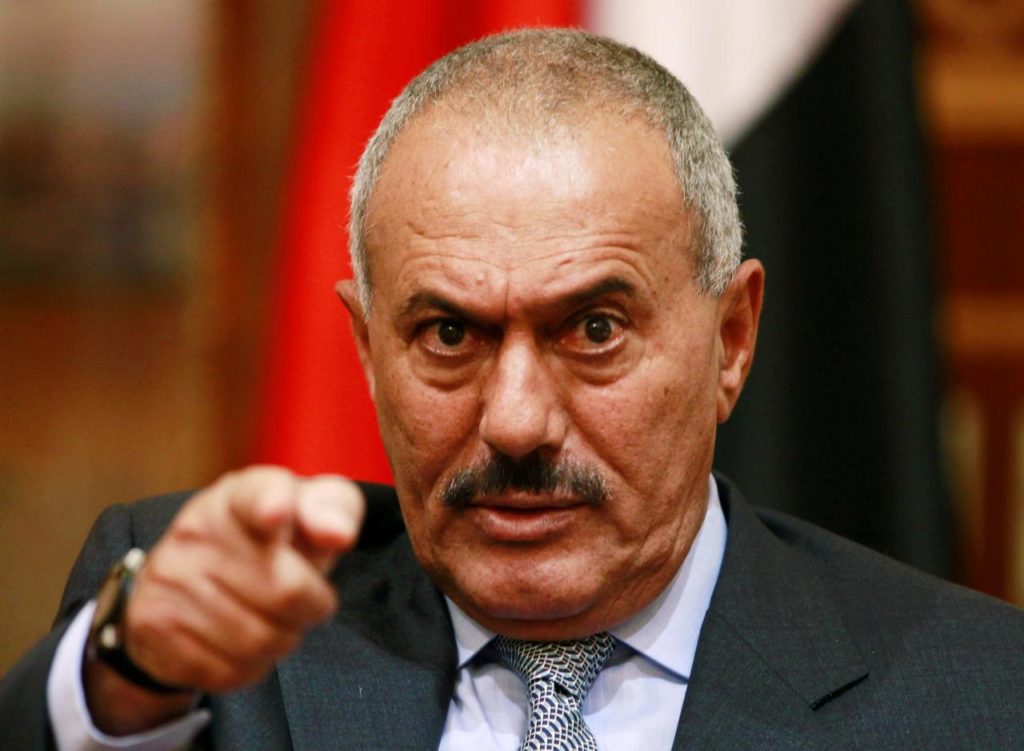
FILE PHOTO: Yemen’s then President Ali Abdullah Saleh points during an interview with selected media in Sanaa, May 25, 2011. REUTERS/Khaled Abdullah/File Photo
Saleh, dancing on the heads of snakes
Saleh once compared his 33-year rule over Yemen to “dancing on the heads of snakes”, a period that included unification of conservative north and Marxist south Yemen, civil war, revolts, Islamist militant campaigns and tribal feuds.
But he was forced from power in 2012 after an Arab Spring uprising that left him wounded by an attempted assassination, leading to a Saudi-brokered political transition.
He fled to Saudi Arabia, his former ally, for treatment of his injuries and the princes in Riyadh allowed him to return to Yemen months later – something they came to bitterly regret as he undermined the transition plan and later joined the Houthis.
That set the stage for his final role – that of ally to
the Houthi movement which he had previously fought six times during his own presidency, and to Iran, the Houthis’ political backer.
But Houthi and Saleh loyalist forces jostled for supremacy over the territory they ran together, including Sanaa, and their feud burst into open combat on Nov. 29.
The maneuvering ended on Monday as footage circulating on social media appeared to show Saleh’s corpse, a deep wound in the side of its head, wrapped in a red blanket and being loaded onto a pick-up truck as jubilant tribal fighters waved their weapons and shouted, “Praise God!”
Saleh’s death was confirmed by Saleh’s nephew and former chief of Yemen’s security forces, Yahya Mohammed Abdullah Saleh, who hailed him as a martyr on his official Facebook page.
Residents reported that the situation in Sanaa calmed later on Monday. Most people were indoors, and streets were deserted amid a state of fear as the Houthis asserted full control. Saudi-led aircraft continued to pass overhead.
Houthi spokesman Mohammed Abdul Salam claimed significant gains in the battle for Sanaa on Monday.
“With the aid and approval of God, the security forces backed up by wide popular support were able last night to cleanse the areas in which the militias of treason and betrayal were deployed,” he said in a statement.


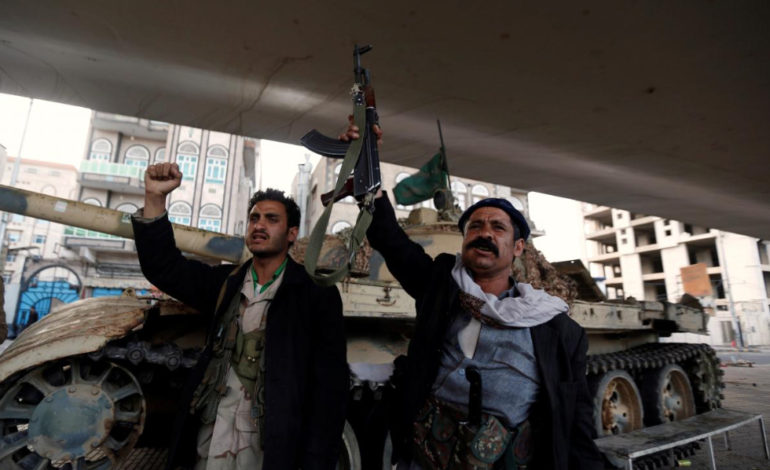
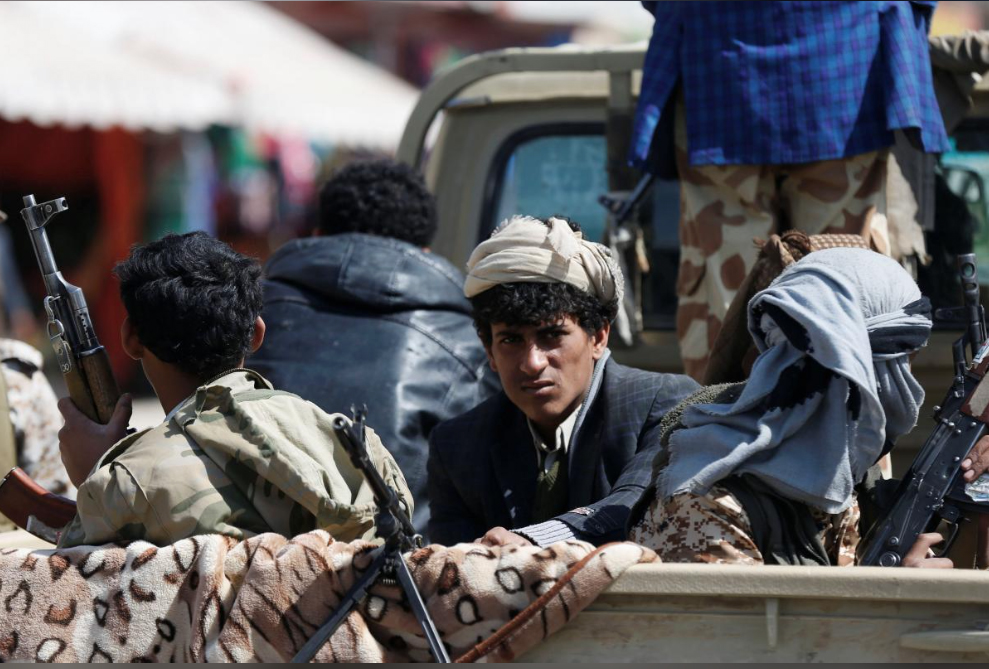
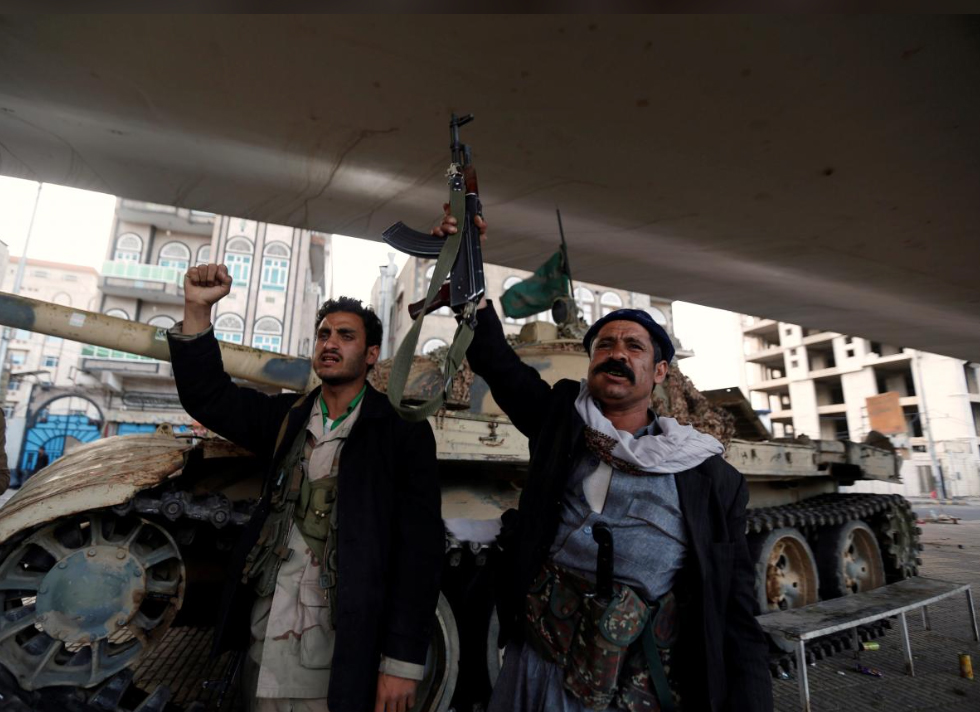
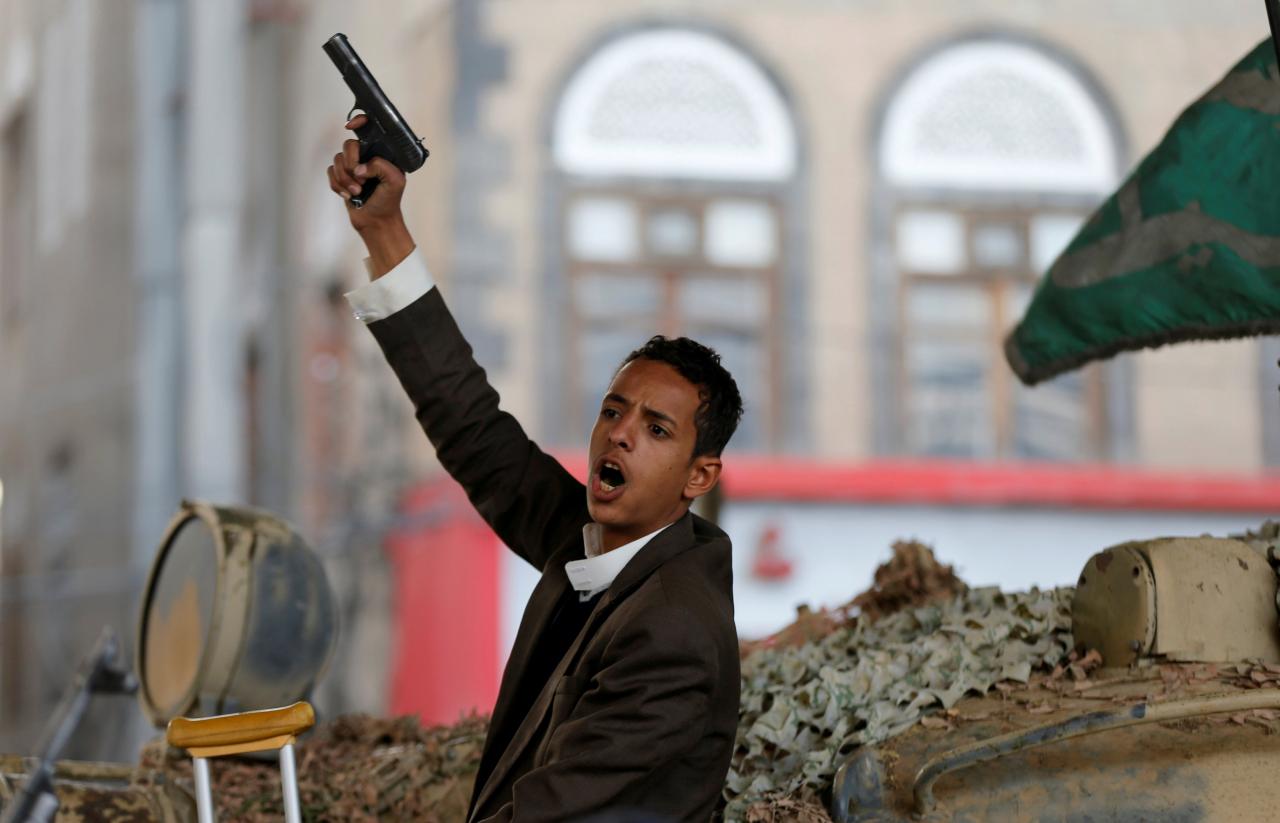
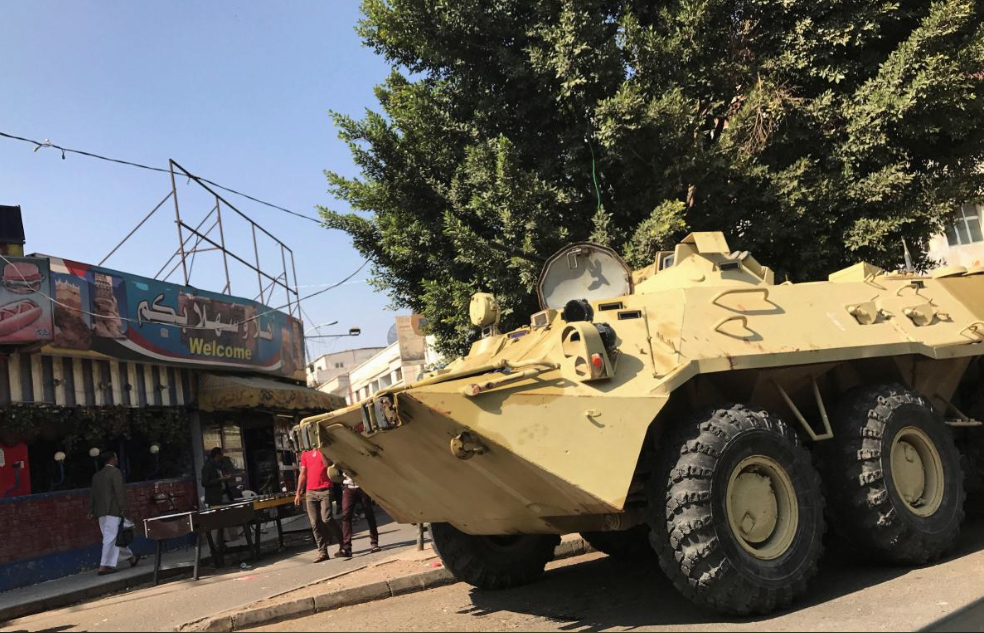
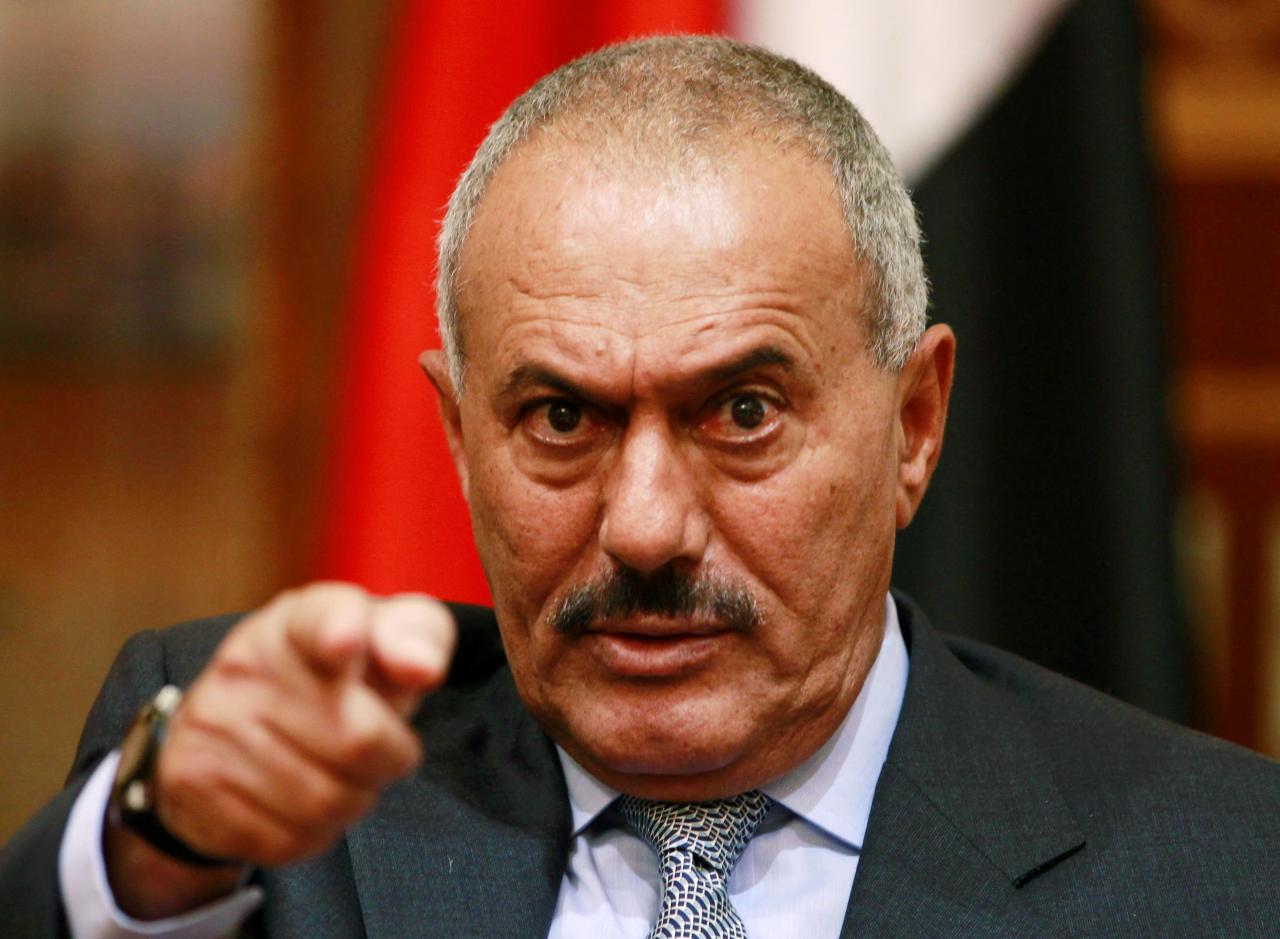
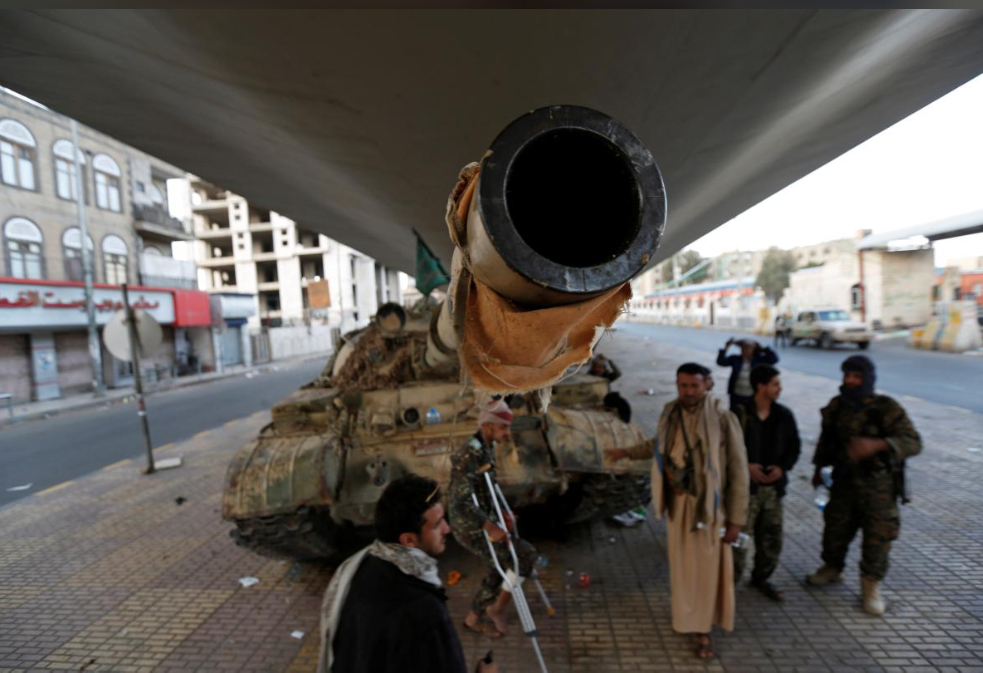
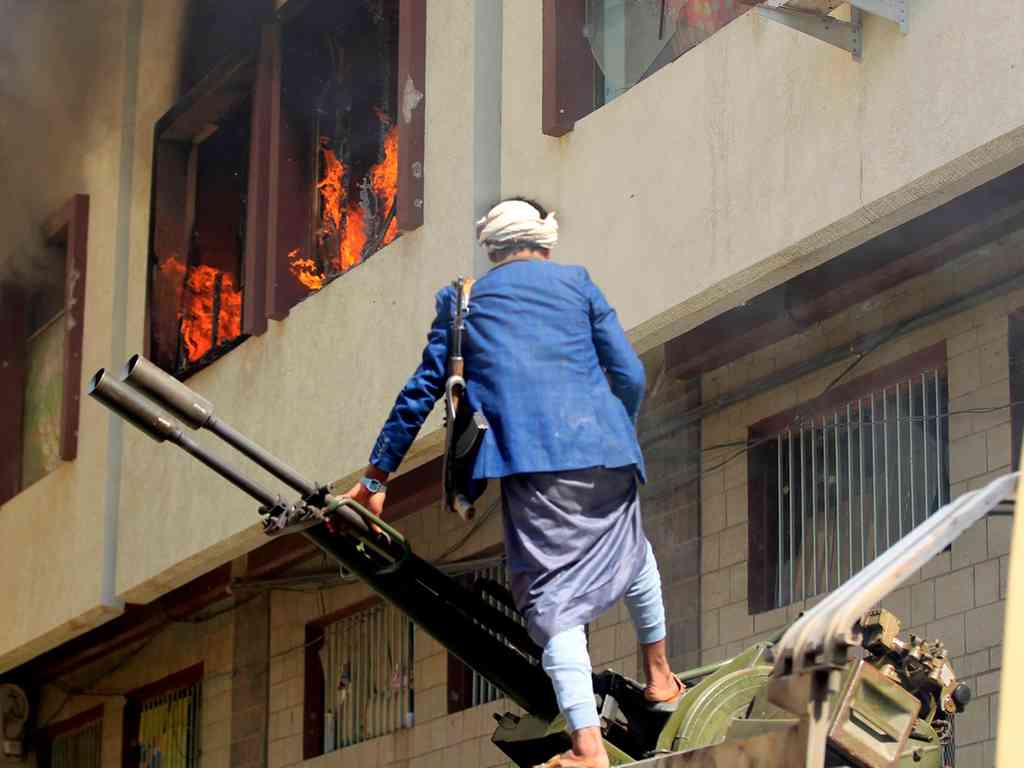
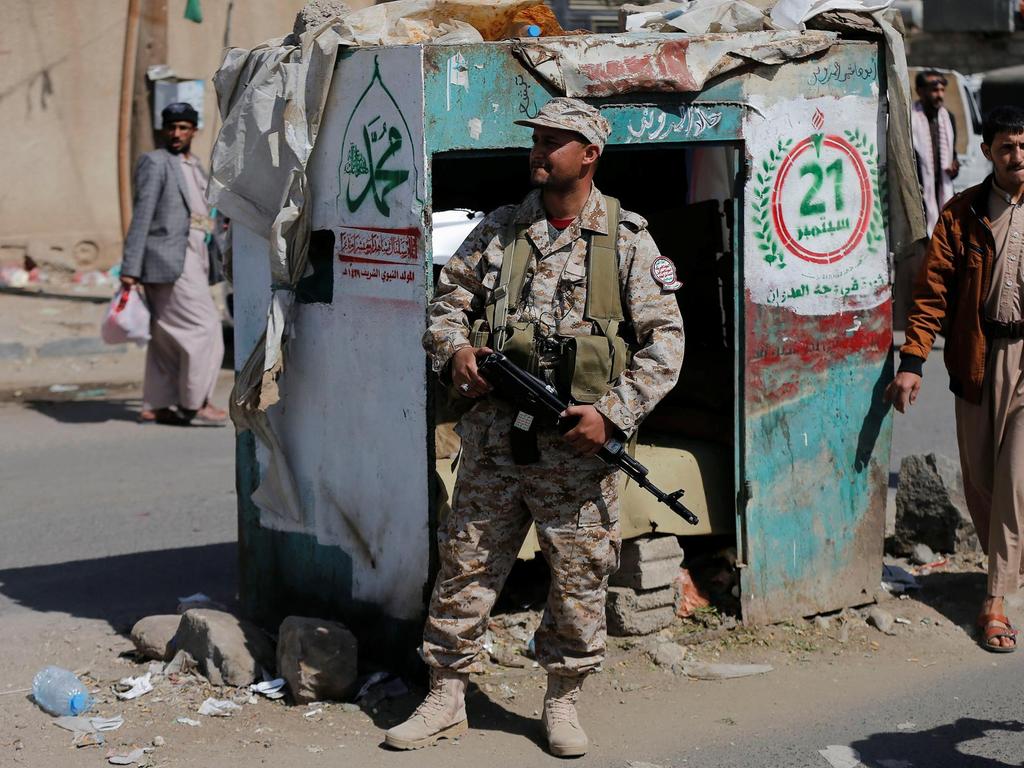



Leave a Reply